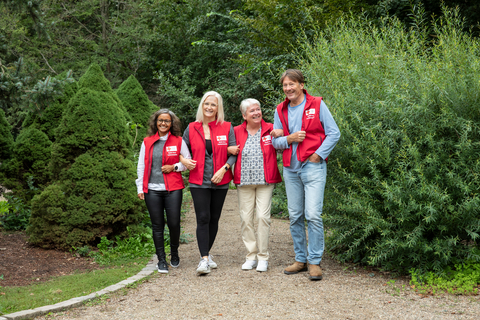
Advocating for NCD care in humanitarian settings
OUTCOMES OF A BOOTCAMP JUNE 2018

OUTCOMES OF A BOOTCAMP JUNE 2018
An estimated 134 million people will be affected by humanitarian crises in 2018, of whom 68.5 million are refugees or displaced persons. In 2017 alone, 16.2 million people were displaced, either for the first time or repeatedly. This means that one in every 110 people in the world today has been forced from their homes.
Emergencies are becoming increasingly protracted, with displacement sometimes measured in decades. The traditional humanitarian response, however, is short term and reactive, responding to the acute phase of the emergency. Chronic conditions and long-term prevention planning are therefore not part of the response. There is a striking lack of political focus, funding and support for treatment, care and prevention of NCDs in emergency settings, despite the burden that they pose on communities. Successful prevention, care and treatment of NCDs has economic benefits for families, business and society, reduces loss of life and upholds the right to health – and is absolutely necessary to address if governments are to reach their Sustainable Development Goal commitments of a 30 per cent reduction in premature mortality from NCDs by 2030. People affected by emergencies are mong the most vulnerable populations in the world, so if calls for Universal Health Coverage are serious, then their needs must be prioritised.
2018 is an important year for NCDs; September sees a High-Level Meeting on NCDs during the United Nations General Assembly in New York – an opportunity for heads of state and government to recognise and commit to the need to act. The impact of humanitarian crises on NCDs must not be neglected.
Access to treatment
Continuity of care
Addressing risk factors in the community
Preparedness
Research and evidence
Financing and partnerships
The information on this site is an outcome of the “NCDs in humanitarian settings” Bootcamp, held in June 2018. The Bootcamp brought together 70 young professionals and established experts from more than 30 different organizations to inspire advocacy action on the challenge of NCDs in humanitarian settings. The Bootcamp was developed and hosted by the partners: the Danish Red Cross, NCDFREE, the IFRC, and the University of Copenhagen.
For further information or to collaborate on this important issue, please contact NCD Project manager, Anja Bjerregaard Christensen at anbch@rodekors.dk or NCDFREE at hello@ncdfree.org.